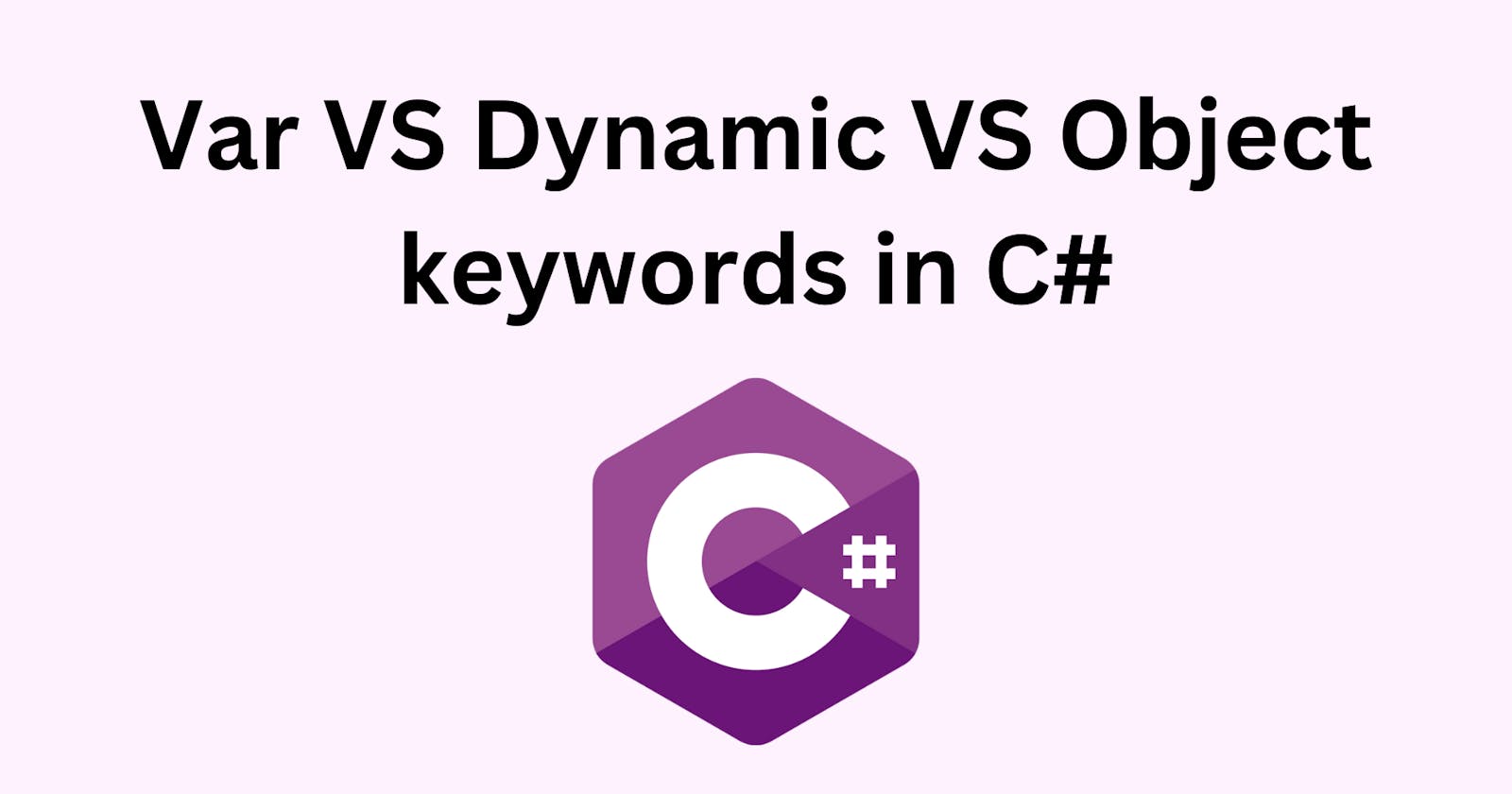Var vs Dynamic vs Object keywords in C#
Understanding the difference between var, dynamic and object keywords in C#
C# is an object-oriented programming language that provides various data types to store and manipulate data. Among these data types, var, dynamic, and object are some of the most commonly used. In this article, I will discuss the differences between var, dynamic, and object in C# using examples.
Var keyword in C#
var is a keyword used for implicit typing in C#. It allows you to declare a variable without specifying the type explicitly. The C# compiler determines the type of the variable based on the value you assign to it. For example:
var myNumber = 10;
In this example, the compiler infers the type of the myNumber variable as int because the assigned value is an integer.
Dynamic keyword in C#
dynamic is another keyword that allows you to declare a variable without specifying its type. However, unlike var, the type of a dynamic variable is determined at runtime instead of compile-time. This means that you can assign any value to a dynamic variable, and the type of the variable will be determined at runtime. For example:
dynamic myValue = "Hello";
myValue = 10;
In this example, the type of the myValue variable is determined at runtime. Initially, it is set to a string value, but later it is assigned an integer value.
Object keyword in C#
object is a keyword in C# that represents the base class for all types in .NET. It is the most general type in C#, and all other types inherit from it directly or indirectly. You can assign any value to an object variable, and the value will be treated as an instance of the object class. For example:
object myObject = "Hello";
myObject = 10;
In this example, the myObject variable is initially set to a string value, but later it is assigned an integer value.
Choosing the right keyword for the given situation
So, how do you choose which keyword to use in a given situation? Here are some guidelines:
Use
varwhen you know the type of the variable at compile-time and want to avoid typing the type explicitly.Use
dynamicwhen you need to work with an object whose type is not known at compile-time, or when you want to use late binding.Use
objectwhen you need to work with an object of any type, or when you want to use reflection.
Let's see some examples to illustrate the use of these keywords.
// Using var
var myString = "Hello, World!"; // Compiler infers type as string
var myInt = 42; // Compiler infers type as int
// Using dynamic
dynamic myDynamic = "Hello, World!"; // Type is determined at runtime
Console.WriteLine(myDynamic.Length); // Output: 13
myDynamic = 42; // Type is determined at runtime
Console.WriteLine(myDynamic.ToString()); // Output: 42
// Using object
object myObject = "Hello, World!"; // Any type can be assigned
Console.WriteLine(myObject.ToString()); // Output: Hello, World!
myObject = 42; // Any type can be assigned
Console.WriteLine(myObject.ToString()); // Output: 42
As you can see, each keyword has its own use cases and benefits. Choose the one that best fits your needs and the requirements of your project.
Conclusion
In conclusion, var, dynamic, and object are three important keywords in C# that allow you to declare variables without specifying their types explicitly. The var keyword is used for implicit typing at compile-time, while the dynamic keyword is used for dynamic typing at runtime. The object keyword is used for working with objects of any type.
Each keyword has its own strengths and use cases, and choosing the right one for a given situation can help you write cleaner and more efficient code. By understanding the differences between these keywords and their use cases, you can improve your coding skills and write better programs in C#.
